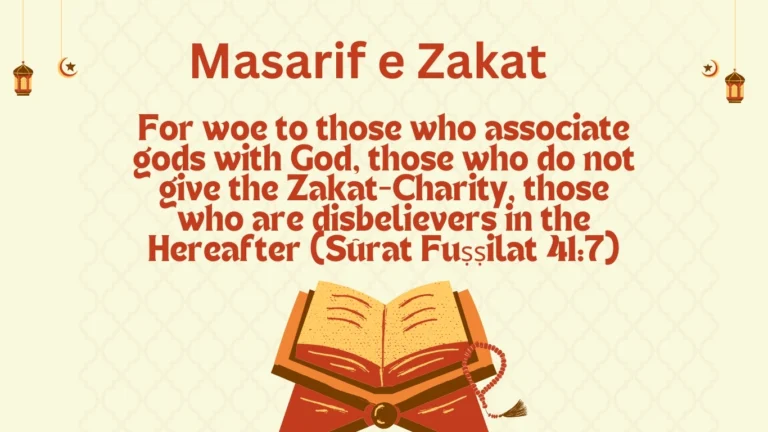In a world where the gap between the rich and the poor continues to widen, the concept of zakat offers a breath of hope. Rooted in Islamic tradition, zakat is an obligatory form of charity that has profound implications for societal welfare. However, to truly appreciate its significance, one must grasp the concept of Masarif e Zakat, which outlines the rightful recipients of this mandatory almsgiving.
مصارف زکوٰۃ
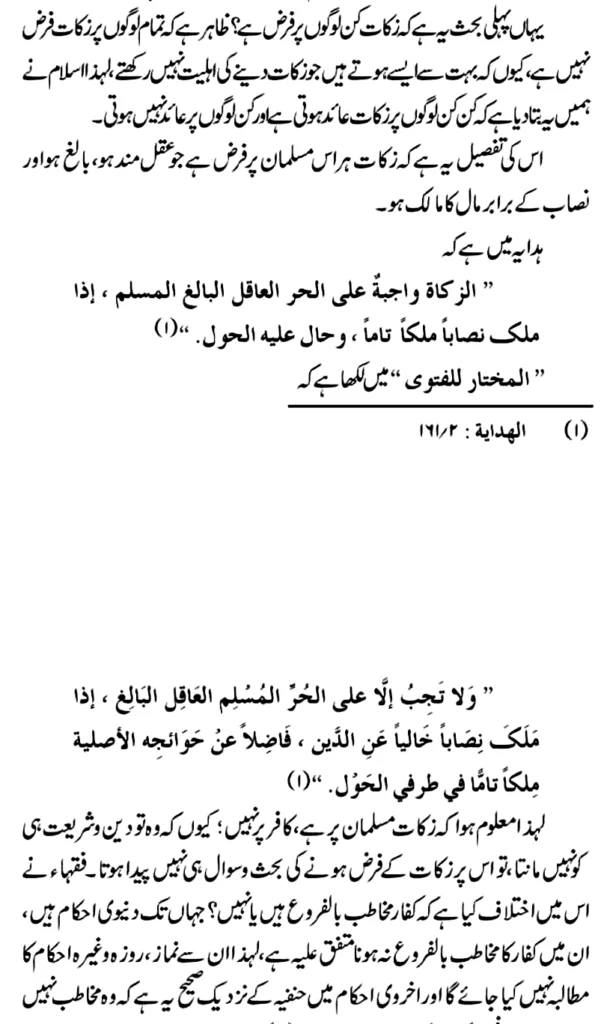
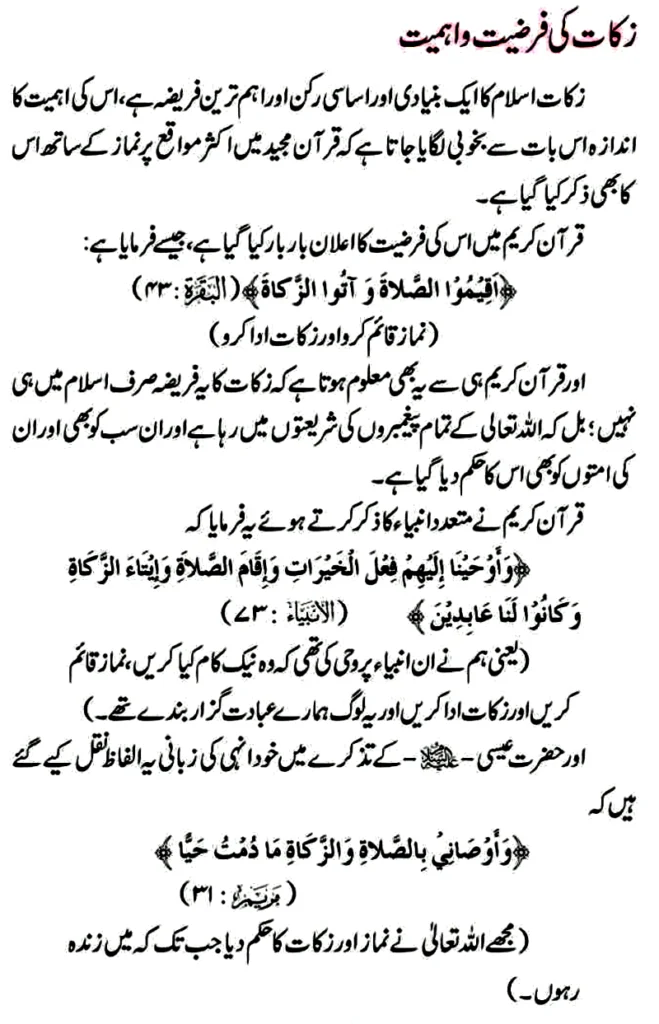
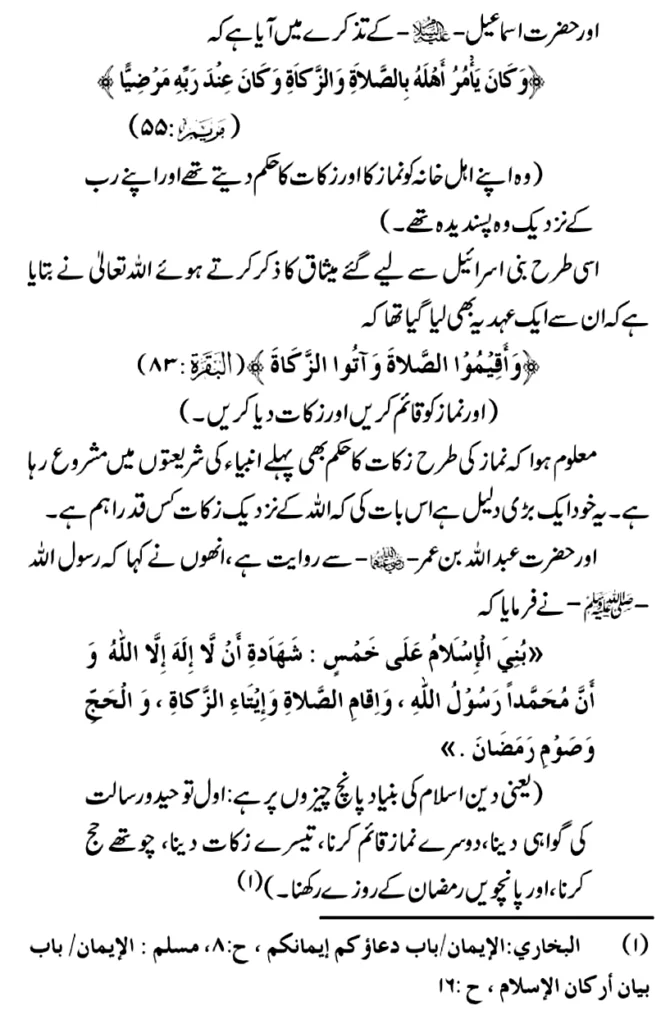
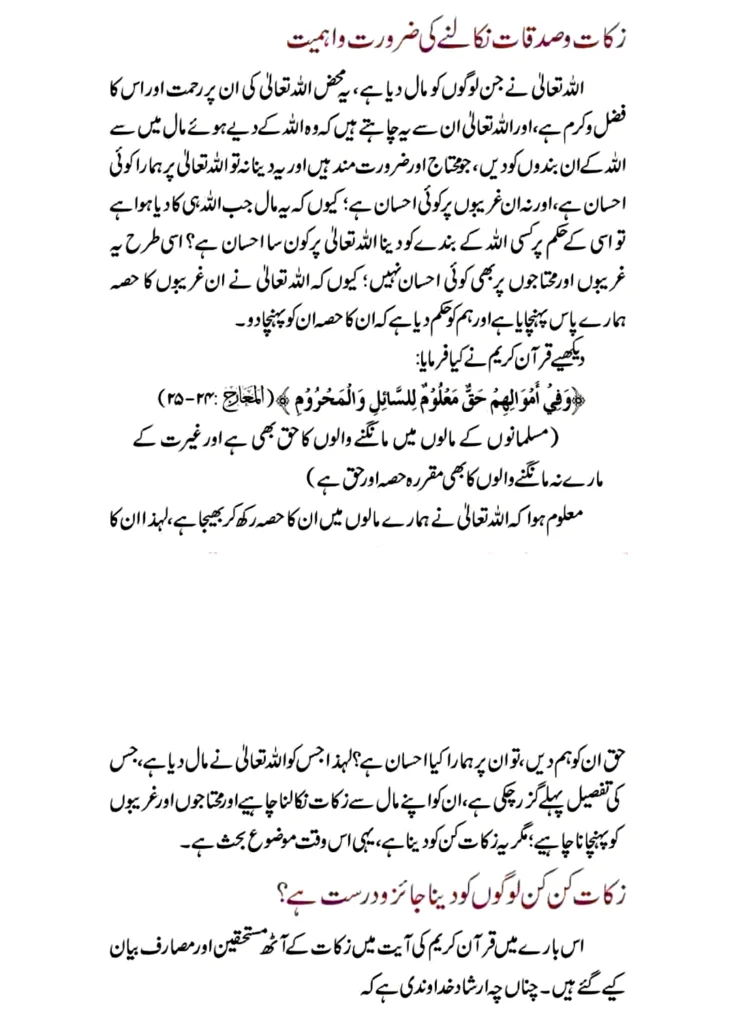
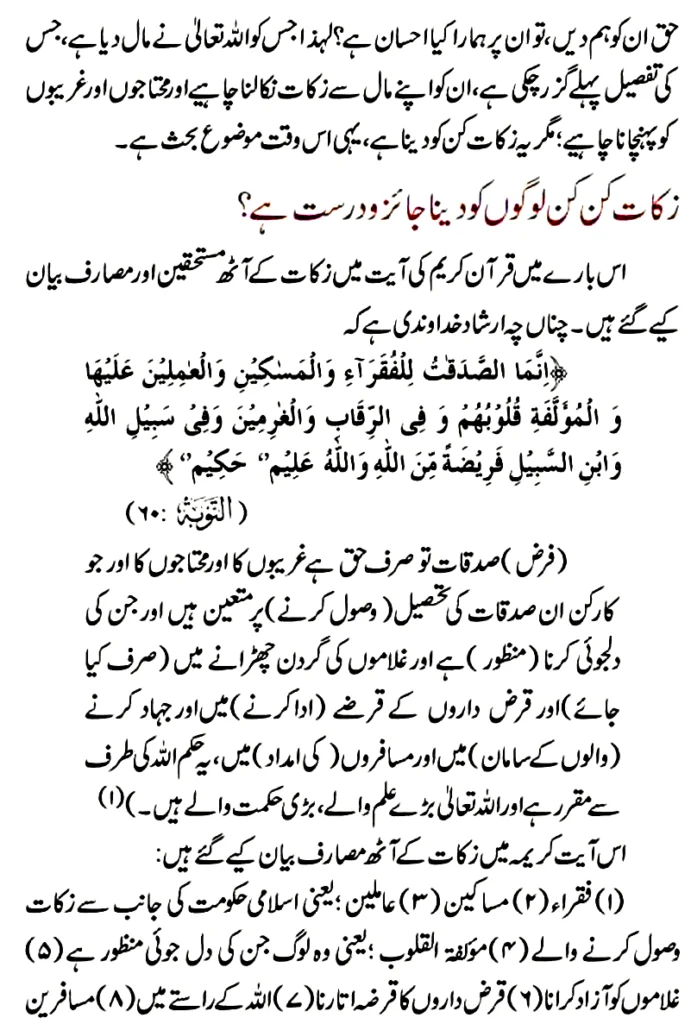

What is Zakat?
Zakat is one of the Five Pillars of Islam, making it a fundamental practice for all devout Muslims. It mandates that a portion of a Muslim’s wealth be given to those in need. Typically, the amount is 2.5% of one’s savings and wealth accumulated over a lunar year.
Zakat serves multiple purposes. It purifies wealth, promotes social justice, and helps reduce economic disparity. It’s not just an act of charity but also a means of fostering economic stability and growth within the community.
The Concept of Masarif e Zakat
The term Masarif e Zakat refers to the categories or recipients eligible to receive zakat. The Quran outlines eight specific categories, ensuring that zakat reaches those who need it the most. Understanding these categories is crucial for anyone who wishes to fulfill their religious obligations properly.
The eight categories include:
- The poor (al-fuqara)
- The needy (al-masakin)
- Those employed to collect zakat
- Those whose hearts are to be reconciled
- Those in bondage
- Those in debt
- In the cause of Allah
- The wayfarer
Why Masarif e Zakat Matters
Grasping the nuances of Masarif e Zakat is essential for both zakat givers and receivers. For the givers, it ensures that their contributions go to the right people, fulfilling their religious duties accurately. For the receivers, it means access to resources that can dramatically improve their quality of life.
Al-Fuqara and Al-Masakin
The first two categories, al-fuqara (the poor) and al-masakin (the needy), are often used interchangeably but have subtle distinctions. The poor are those who do not have enough to meet their basic needs, whereas the needy might have some means but still struggle significantly.
Ensuring these groups receive zakat can uplift entire communities. From providing basic necessities to funding education and healthcare, these funds can make a substantial difference in their lives.
Zakat Collectors
Another crucial category includes those employed to collect zakat. These individuals play a vital role in ensuring the efficient distribution of zakat. They not only collect but also verify the eligibility of recipients, ensuring that zakat reaches its rightful beneficiaries.
By supporting zakat collectors, the community can ensure a more organized and transparent system, which ultimately benefits everyone involved.
Reconciliation of Hearts
The category of those whose hearts are to be reconciled is fascinating. It includes new Muslims and those close to accepting Islam. By providing zakat to these individuals, the community can foster goodwill and promote a sense of belonging.
This category extends beyond financial support; it’s about building a cohesive community where everyone feels valued and included.
Freedom from Bondage
In historical contexts, zakat was used to free slaves or those in bondage. While slavery is no longer prevalent, this category can still be relevant today. It can apply to those trapped in modern forms of exploitation and human trafficking.
Zakat aimed at freeing individuals from such conditions can restore their dignity and provide them with a fresh start, contributing to social justice.
Helping Those in Debt
Debt can be crippling, preventing individuals from moving forward in life. Zakat can be used to help those burdened by debt, provided it was incurred for a legitimate reason and they have no means to repay it.
This form of zakat can relieve significant stress and enable individuals to focus on rebuilding their lives without the constant burden of debt.
In the Cause of Allah
This category is often interpreted to mean funding efforts that promote the welfare of the Muslim community. It can include building mosques, schools, and other community infrastructure.
Using zakat for such purposes can have long-lasting benefits, strengthening the community and providing essential services that improve the quality of life for all members.
Assisting the Wayfarer
The final category, the wayfarer, includes travelers who are stranded or in need of assistance. In today’s context, it can also apply to refugees and migrants who find themselves in difficult situations far from home.
Providing zakat to wayfarers ensures that they receive the help they need to reach their destinations or find stability in a new place.
The Broader Implications of Masarif e Zakat
Understanding and implementing Masarif e Zakat has broader implications for modern society. It can serve as a model for effective wealth redistribution, reducing economic disparities and fostering social harmony.
In a world grappling with inequality, the principles of zakat offer timeless wisdom. They remind us that our wealth is not just a personal asset but a communal resource that can uplift others and create a more just society.
Examples of Successful Zakat Implementation
There are many examples worldwide where zakat has made a significant impact. Organizations like Islamic Relief and the Zakat Foundation have used zakat to fund various humanitarian projects, from disaster relief to educational initiatives.
These examples demonstrate the power of zakat when distributed correctly, adhering to the principles of Masarif e Zakat.
Practical Tips for Fulfilling Your Zakat Duties
Fulfilling zakat duties can seem daunting, but it doesn’t have to be. Here are some practical tips:
- Calculate Accurately: Use online zakat calculators to ensure you’re giving the correct amount.
- Choose Reputable Organizations: Ensure your zakat goes to credible organizations that follow the principles of Masarif e Zakat.
- Stay Informed: Continuously educate yourself about zakat and its contemporary applications to ensure your contributions are meaningful.
The Role of Community in Zakat Distribution
Community involvement is crucial in the distribution of zakat. Local mosques and community centers can serve as hubs for collecting and distributing zakat, ensuring it reaches those most in need in the community.
By working together, communities can create more efficient and transparent systems for zakat distribution, maximizing its positive impact.
Encouraging a Culture of Giving
Beyond the obligatory nature of zakat, fostering a culture of giving can have profound effects on society. Encouraging voluntary charity (sadaqah) alongside zakat can further enhance community welfare and solidarity.
This culture of giving can inspire others to contribute, creating a ripple effect of generosity and compassion.
Conclusion
Understanding Masarif e Zakat is essential for fulfilling one of the core pillars of Islam effectively. It ensures that zakat reaches those who need it most, promoting social justice and economic stability.
For those looking to deepen their understanding and practice of zakat, numerous resources and organizations can offer guidance. By fulfilling our zakat duties, we contribute to a more just and compassionate society.
If you’re looking to explore more about zakat and its applications, consider booking a consultation with our experts who can help you understand and fulfill your obligations better.

